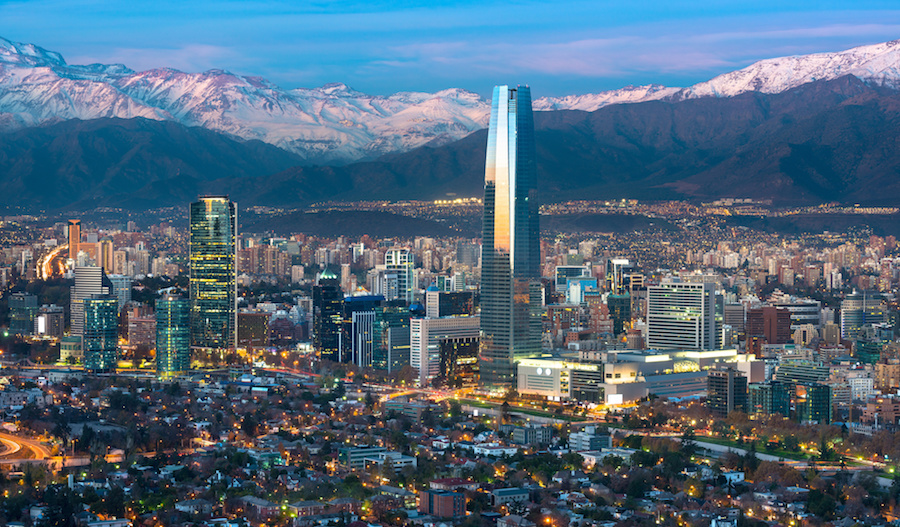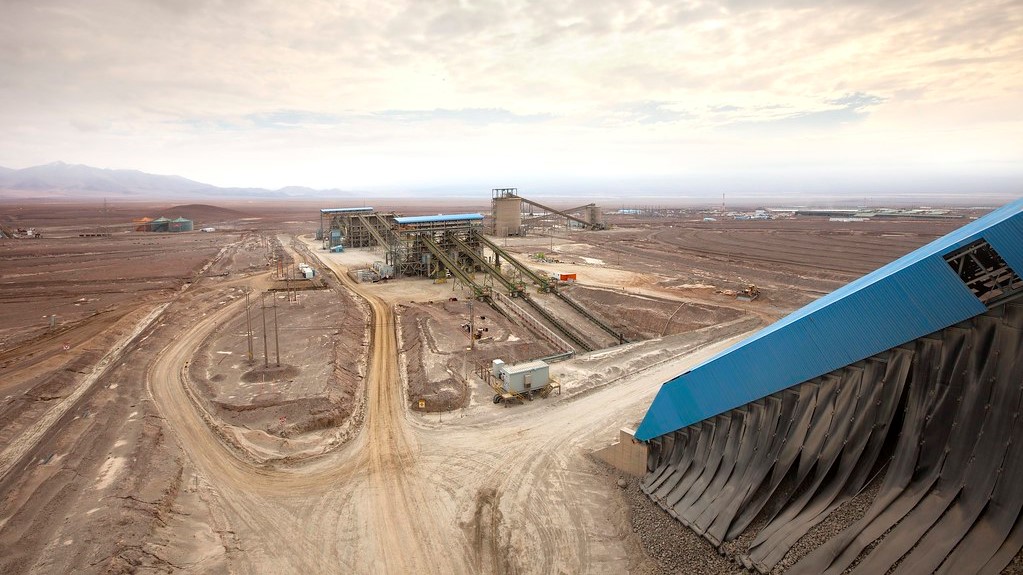Chilean lawmakers postpone vote on controversial mining royalty bill
Cecilia Jamasmie | August 4, 2021 |

Chile’s capital, Santiago. (Stock image. )
Chile’s senate has postponed for almost three weeks a vote on an opposition-sponsored bill that could hike taxes on miners by up to 75% depending on the price of copper, the country’s main export.

The bill, first introduced in 2018, calls for a 3% royalty on sales of over 12,000 tonnes of copper productions a year and 50,000t/y of lithium.
BILL COULD HIKE TAXES ON MINERS BY UP TO 75% DEPENDING ON THE PRICE OF COPPER, CHILE’S MAIN EXPORT
Half the funds obtained from the royalty would go into a convergence fund to finance regional and communal development projects. The other half would directly finance projects to mitigate, compensate or repair environmental impacts from mining activity in communities near mining projects.
The legislation, which faces multiple procedural hurdles, could risk some 1 million tonnes of annual copper output, representing around 4% of global production, Goldman Sachs said in May.
The bank noted that more than half of the foreign-owned copper mines in Chile have tax stability agreements that expire in 2023, limiting immediate exposure to the bill’s eventual passage. But future mine development would be in jeopardy.
Chile’s current tax regime for miners includes a corporate tax of 27% and a special tax or royalty of up to 14% on operating profits, depending on production rates. Below 50,000 tonnes of copper a year, miners pay 9%.
No vote date
The mining and energy committee has been discussing the bill for seven weeks and has not set a date for the vote. The proposal was already accepted by the lower house.
Proponents of the bill argue that provincial governments do not receive enough compensation for the extraction of mineral resources and that the new taxes will change that. Mining representatives and analysts, in turn, warn the proposed law would drive away new investments and some mining operations and expansions would become economically unviable.
If the royalty bill does get through senate, Sebastian Piñera’s administration is likely to block its passage via the constitutional court. Ruling coalition lawmakers laid the groundwork for taking the bill to court by presenting a so-called constitutional reservation.
Chile, the world’s top copper producer, also holds about 52% of the world’s known lithium reserves. The nation aims at making the white metal its second-largest mining asset. Lithium is currently the country’s fourth-biggest overall export.
WHERE WOULD THEY GO? PERU PERHAPS?
NOT LIKELY THEY ARE LOOKING AT ROYALTIES TOO
Foreign miners in Chile warn lawmakers fresh royalties would hammer competitiveness
Reuters | August 4, 2021

The El Abra mine in northern Chile. (Credit: Consejo Minero)
Foreign companies operating in world top copper miner Chile on Wednesday asked lawmakers to rewrite a controversial bill that would slap royalties on their sales, warning the fresh taxes could squander their competitiveness and future investment plans.

The royalty bill has gained momentum this year as prices of the red metal – critical for its use in construction and automaking industries – have soared amid a nascent global recovery following the coronavirus pandemic.
Smaller miners with annual production under 100,000 tonnes in particular warned that they would be disproportionately impacted given their higher operating costs.
Giancarlo Bruno, chief executive of Mantos Copper – a consortium run by UK investment firm Audley Capital Advisors and Orion Mine Finance – warned the bill as written could force the closure some such projects, and urged lawmakers to consider a “new formula,” noting that there was still room for higher taxes on margins rather than sales.
CHILE CURRENTLY CHURNS OUT 28% OF THE WORLD’S COPPER BUT HAS FOR MORE THAN A DECADE LOST MARKETSHARE
Proponents of the bill, which proposes a base rate royalty of 3% on copper and lithium sales that would increase alongside global prices, say proceeds are urgently needed to underwrite social programs for Chileans suffering from the coronavirus pandemic.
Luis Sánchez, president of Minera Candelaria – owned by Canada’s Lundin Mining Corp – said his firm was open to discussion but that the bill as written would put royalties well over those paid by miners elsewhere.
“An increase in the mining royalty would leave us in a position less competitive in world industry,” Sanchez said.
Chile currently churns out 28% of the world’s copper but has for more than a decade lost marketshare, hobbled by declining ore grades and ageing projects.
Francisco Costabal, of U.S.-owned Freeport-McMoran, said the bill could ratchet up their tax burden to an unsustainable 65.3% to 68%.
“The royalty project seriously affects operational continuity from El Abra,” he said. The company’s small El Abra mine in northern Chile produced 71,900 tonnes of copper in 2020.
Official government statistics show miners currently pay 27% of pre-tax profits, in addition to other levies.
The legislation to hike royalties has previously been labeled a death knell “akin to expropriation” by Chile’s National Mining Society, which encompasses all of the country’s largest miners.
(By Fabian Cambero and Dave Sherwood; Editing by Marguerita Choy)
No comments:
Post a Comment